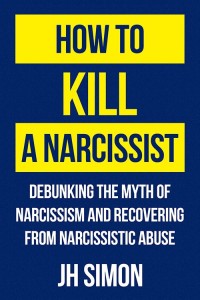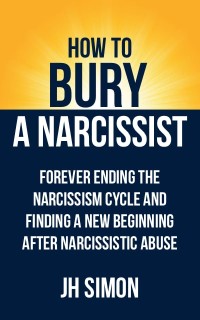Table Of Contents
We all seek a life without regret, which is built on two pillars:
- Entitlement: We all have needs. Unless we speak up for what we want and expect outside support to come, we will suffer greatly as our needs go unmet.
- Audacity: We all have dreams. To feel like we are going nowhere and that our fortunes will never improve makes life unbearable. We inherently seek transcendence and evolution. We need to express our creativity, ambition and courage in chasing our grand visions.
Audacity and entitlement; these are the two components of healthy narcissism.
Yet what separates healthy narcissism from the unhealthy kind? No sane person likes an entitled brat who steps all over others, and almost nobody likes someone who thinks they are ‘all that’ and who uses others for their own gain.
What anchors and informs healthy narcissism are two things which unhealthy narcissism is missing: shame and reality testing.
Shame: One For All, All For One
Healthy humans feel shame when they disappoint someone they love, or when they fail to live up to expectations, or when they judge themselves to be ‘less than’ or ‘inferior to’ someone else.
At its worst, shame is that burning sense of being a bad person who must hide in a dark hole, of being defective and unworthy of love. Unhealthy shame is often turned against us by abusers, and forces us to ‘stay in our lane’. This lane quickly becomes an oppressive box which kills our dreams and tells us we are illegitimate and unworthy of having our needs met.
On the other hand, healthy shame helps us to consider the boundaries, feelings and rights of others. We can feel worthy of having our needs met, but at the same time, our shame reminds us that the person meeting those needs is not an object to be used or our slave — they are a human being like us who also has needs.
Healthy shame creates a sense of tribe within us, and compels us to meet the needs of those we love. Shame creates a harmonious, rhythmic back-and-forth between tribe and family members which ensures the collective prosperity of all.
When members of a tribe have their needs met by each other, they come to have high self-esteem and well-being. That is, healthy shame breeds healthy narcissism.
Reality Keeps The Score
People with narcissistic personality disorder (NPD) exist on the extreme end of the narcissistic spectrum. Their entire personality is predicated on the need to be superior, as well as the addictive pursuit of narcissistic supply at any cost.
The narcissist’s childhood trauma is so great, they have disowned their shame and now live in a semi-dissociated fantasy world. They brainwash people around them to feed them narcissistic supply by creating a fantastical reality which promises to fulfil the target’s needs (But ultimately never does).
Over time, people catch on to how the narcissist is instrumentalising them.One by one, they leave the narcissist’s life for something more grounded and real, or the narcissist discards them for not playing along with the fantasy.
Healthy people give others the benefit of the doubt. They assume that a person plays fair. As the years pass by and the truth comes to light, the narcissist’s ‘goodwill’ currency with healthy people runs out, and the narcissist’s bankrupt false self is all that remains. The end of their life nears, and they come to a harrowing realisation that they have nothing real to show for it. As the potency of the fantasy withers, reality slowly comes into focus.The chickens come home to roost. The narcissist realises that their grandiosity was split from reality, and the world has carried on without them.
Bridging The Gap Between Fantasy And Reality
All dreams begin as fantasy, as a figment of our imagination. Yet those who possess healthy shame and a healthy respect for reality can manifest their dream brick-by-brick in the real world.
When the split between fantasy and reality is absolute, you are doomed to catastrophe. When the person with healthy narcissism struggles to realise their dream, they look further into the world to find a way. In some cases, they let go of part of that dream or reform it into something more fitting. Above all, healthy narcissism welcomes failure as a feedback mechanism for making adjustments and improvements.
Dreams can become reality, and reality can shift. Yet this is achieved by constant reality testing and healthy shame. It is about knowing and respecting your limits and the limits of those around you, and working within this reality framework as you evolve it bit by bit.
Above all, the person with healthy narcissism respects the people who support them in realising their dreams. In turn, they help others realise their own dreams. They empathise with others, meet their needs, and participate in a healthy give-and-take. The person with healthy narcissism is not addicted to narcissistic supply, and does not suck the people around them dry or constantly abuse them. As a result, people gain value from having the healthy person in their life, and the resulting relationship evolves over the years rather than wither and die.
Trauma: A Break With Shame And Reality
Reality and shame have not been kind to the narcissist. The narcissist grew up not being seen for who they were. They were instrumentalised, attacked, ridiculed and held to impossible standards. They were continually shamed, and their reality was a living hell. Therefore, to cope and survive, they split from reality and disowned their shame, relying on their grandiose, dissociated false self instead.
Most of us exist somewhere in the middle of the narcissistic spectrum. We pendulate between keeping ourselves needlessly small, or inflating ourselves in fantastical and unrealistic ways.
As we aim for healthy narcissism, we can learn much from the narcissist’s tragedy. We can focus on healing, trauma release, and learning to meet our core needs ourselves. We can practice mindfulness and meditation, and grow curious about the potential we hold inside while cooperating with others and remembering their humanity.
To Be A Shining Light
Two terms which often paralyse us are: “That’s the way it’s always been” and “They might get upset”. Such a mindset turns your power in on itself and ensures stagnation, unhappiness and depression — even physical illness.
The status quo is meant to be respected and challenged. Old ways might no longer work. Societal growth might call on new solutions. For that, we need to dream big and have the audacity to believe that we can achieve the impossible.
Abusers turn your shame against you. ‘Tall poppy syndrome’ is the tool of choice for bitter people who hate to see anyone else succeed.
Grandiosity is the belief that you are better than everyone else. Grandeur is the belief that you have a divine core, and that it is your duty to support this core in expanding and growing to its fullest expression.
We are meant to shine, not as a response to a deep-seated sense of inferiority and unworthiness, but rather as a natural consequence of being a human being.
Achieving healthy narcissism is a constant battle between our darker impulses and our humanity. Yet if we win the war, we can look back on our lives with a deep sense of meaning and satisfaction.
We can leave the world behind knowing we made it just that little bit better.















